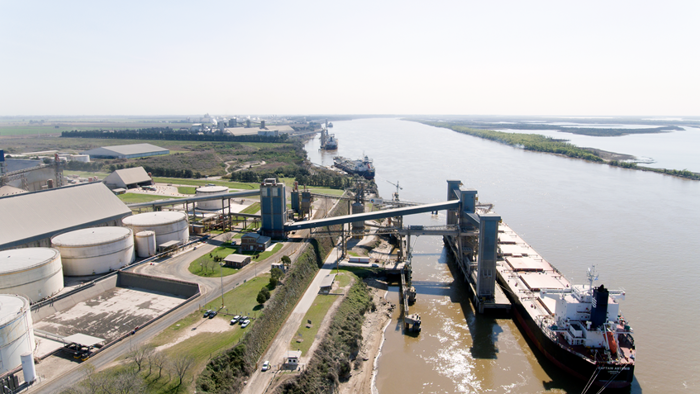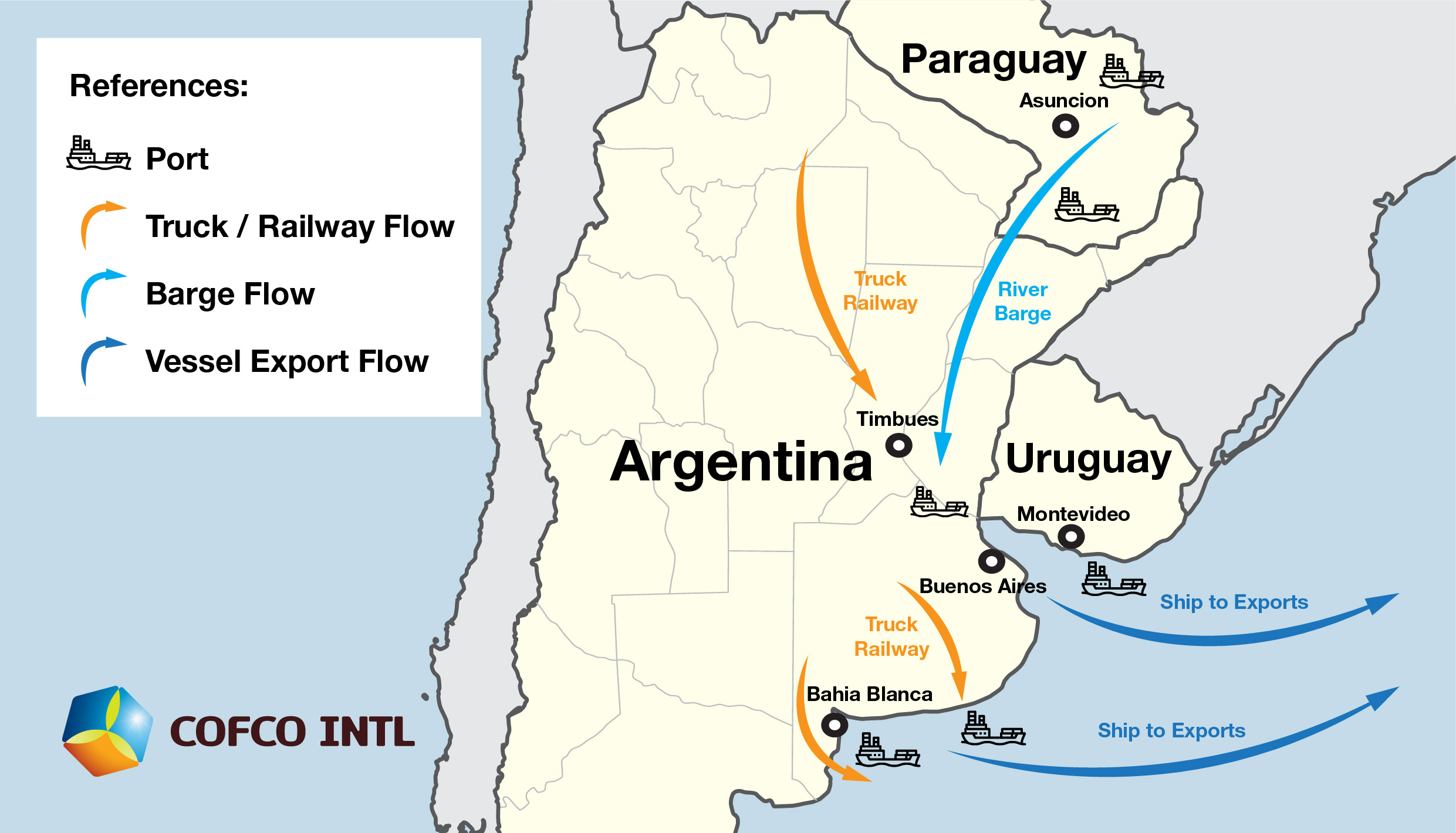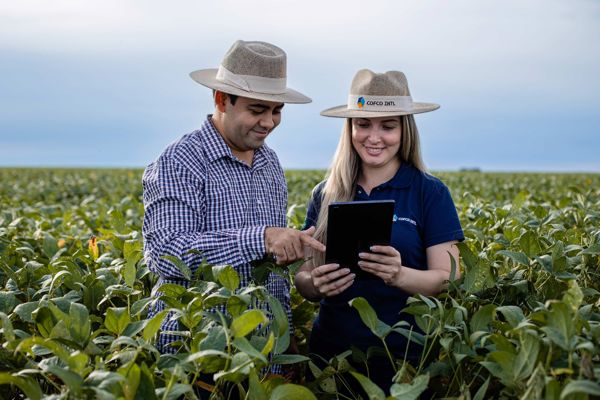
COFCO around the world: Growing the South Cone cooperation
Sitting on the right bank of the Parana River, Timbúes is one of Argentina’s most important agricultural export hubs, playing a key role in getting the region’s maize, soy, wheat, and other commodities to global markets.
Located 30 km out of the city of Rosario, Timbúes is also COFCO International’s largest facility in the country. Connecting road with river and soon the railway too, the complex can unload 1,200 trucks per day, process grains and biodiesel alike, and store 800,000 metric tonnes of dry commodities.
The South Cone region which encompasses Argentina, Uruguay and Paraguay represents 20% of global production of soybean, 4.5% of corn and 2.5% of wheat. The region’s commodities are exported to nearby locations such as Brazil as well as distant destinations including Africa, Southeast Asia, China and the United States.
With demand projected to rise significantly in the coming decades, Timbúes and other assets of COFCO International in this region, will play an increasingly important role.
For the local team, Timbúes is a strategic asset as much as it is a source of pride.

COFCO's Timbúes port terminal on the Parana river near Rosario, Argentina
COFCO International came to Argentina when it acquired Noble and Nidera, two companies competing on the market before merging under the COFCO International umbrella.
From being in the 5th and 6th place in the exporters ranking the company then moved to be in the 1st and 2nd place over the past years.
Behind the success “is the unique blend of a start-up feel combined with a long-standing presence established by the merged companies.”
“It was not easy to build a team that used to compete with each other but we managed to turn it into strength and are now all working together to stay at the top,” says Alfonso Romero, COFCO International’s Managing Director for the South Cone region.

The South Cone
Today, the company’s operations in Argentina, Paraguay, and Uruguay employ 1,600 people, who manage and operate a range of assets including elevators, crushing facilities, and ports.
The facilities are located strategically to maximise exports from the regions. Elevators and crushing plants sit deep inside Argentina’s grain-growing regions with exporting ports scattered along the Parana river. Barges carry soy from Paraguay. And Uruguayan ports also help to export the goods.
In 2020, COFCO International’s consolidated export volumes from the three countries reached 15 million tonnes, up from 13 million tonnes in 2018.
Strengthening the flows between the three South Cone countries and improving their logistics is part of the strategic vision to cement COFCO International’s strong position in the region.
“Argentina, Uruguay, and Paraguay are well-established producers and exporters,” Alfonso says. “Close cooperation will only strengthen their position on the global agricultural market.”
Investing in tech
COFCO International’s ambition is to edge ahead by further investing in technology and innovation. And in that sense, the COVID-19 crisis has been a massive accelerator.
The company’s top priority during the pandemic was to protect the health and safety of people and to keep the supply chains running smoothly.
Thanks to many digital improvements implemented before and during the pandemic, the company was able to run its operations efficiently during this challenging time.
It was one of the first companies in the region to roll out an app digitalising supplier transactions and allowing farmers to sell on their smartphones. The team also recently launched an app facilitating fertiliser sale.
Digitalisation was also key to managing health and safety when social distancing rules have made it harder to keep operations fully staffed. Thanks to improved monitoring systems, automation and other technological solutions the company was able to reduce the number of people onsite and avoid potential transmission of the virus.
“We all got together to make the best out of this situation,” Alfonso says. “We used existing digital tools and developed new solutions that allowed us to keep our people safe, serve our customers better and deliver without interruptions.”
Going forward, technology could play a major role in facilitating advances in sustainability too. According to Alfonso, the country is ready to step up the supplies of fully traceable sustainable soy whenever the market demand increases.
The company will stay competitive by consolidating and improving customer experience and optimizing operations across the region.
“Today, we have a very strong set up that allows us to build on very solid fundamentals,” he says. “Technology and innovation will help us serve our customers better, grow volumes without growing costs.”
